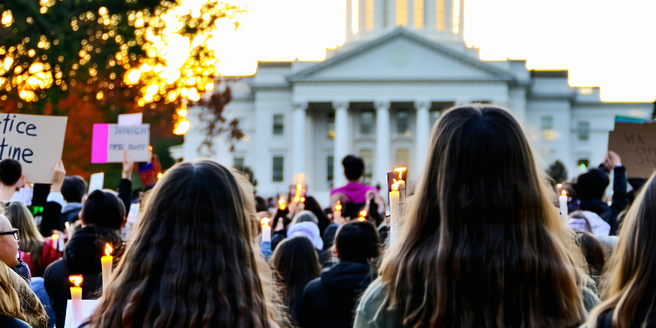
Understanding Civil Rights Class Actions
| Definition | Legal Process | Historical Significance |
| Collective Lawsuit | Filing a Case | Civil Rights Movement |
| Plaintiffs | Certification | Impact on Law |
| Damages | Trial Process | Social Change |
| Justice | Settlement | Precedents |
| Equity | Appeals | Historical Cases |
Historical Context of Civil Rights Litigations
The history of civil rights litigations is deeply rooted in the struggle for equality and justice. Dating back to the civil rights movement of the 1950s and 1960s, these lawsuits have been instrumental in challenging systemic discrimination and advocating for the rights of marginalized groups. Landmark cases such as Brown v. Board of Education showcased the power of legal action in dismantling institutionalized segregation. Over the decades, civil rights class action lawsuits have evolved, reflecting the changing societal norms and legal landscapes. They have addressed issues ranging from racial discrimination to gender equality, often setting precedents that influence future litigations. This historical context is essential in understanding how the law adapts to societal changes and continues to serve as a tool for fighting injustice and advocating for civil rights.
Key Legal Principles in Civil Rights Cases
Civil rights cases revolve around fundamental legal principles that safeguard individual freedoms and prevent discrimination. Central to these cases are the constitutional guarantees found in amendments such as the Fourteenth Amendment, which ensures equal protection under the law, and the Civil Rights Act, which prohibits discrimination in various forms. Legal practitioners in civil rights litigations often engage with doctrines like disparate impact, which addresses policies that may be non-discriminatory in wording but discriminatory in effect. These principles guide the judicial system in assessing the validity and fairness of laws, policies, and practices. They serve as benchmarks for interpreting civil rights and ensuring that every individual, regardless of race, gender, or background, is granted their due legal rights and protections within society.
Notable Civil Rights Class Action Lawsuits
Throughout history, several class action lawsuits have significantly impacted civil rights discourse. Among them, Brown v. Board of Education stands out as a pivotal case that effectively ended racial segregation in public schools. Another landmark case is the Civil Rights Act litigation that challenged racial discrimination across various sectors including employment and public accommodations. More recently, the Wal-Mart v. Dukes case highlighted gender discrimination in the workplace, bringing attention to systemic issues faced by female employees. These lawsuits not only achieved immediate victories for plaintiffs but also set legal precedents that shape future civil rights advocacy. By drawing national attention to these injustices, such cases have galvanized public opinion and legislative action, contributing to the gradual but steady progress towards equality and justice for all.
The Role of the NAACP in Class Actions
The National Association for the Advancement of Colored People (NAACP) has played a crucial role in advancing civil rights through class action lawsuits. Since its inception, the NAACP has actively pursued litigation strategies to challenge laws and practices that perpetuate racial discrimination and inequality. By representing plaintiffs in seminal cases like Brown v. Board of Education, the NAACP Legal Defense Fund has positioned itself as a formidable force in civil rights advocacy. The organization’s approach combines legal expertise, public policy advocacy, and grassroots mobilization to address systemic injustices. Through strategic class actions, the NAACP has effectively dismantled discriminatory practices, advocating for educational equality, voting rights, and criminal justice reform. Their efforts underscore the power of collective legal action in effecting broad social change and ensuring civil rights protections for all citizens.
Legal Procedures in Class Action Lawsuits
Class action lawsuits follow specific legal procedures designed to ensure fairness and effectiveness in addressing claims that affect large groups. The process typically begins with the filing of a complaint, followed by a certification hearing where the court evaluates whether the case qualifies as a class action. Once certified, the case proceeds to discovery, where both parties exchange relevant information, and often involves depositions and document reviews. Settlement negotiations may occur at any stage, with some cases reaching trial if no agreement is reached. Class members are usually notified about the lawsuit and given an opportunity to participate or opt-out. These procedures balance the need for judicial efficiency with the rights of individuals involved, providing a structured framework for resolving complex legal disputes that affect numerous plaintiffs with shared grievances.
Impact of Class Actions on Legislation
Class action lawsuits have a profound impact on shaping legislation and public policy. By addressing systemic issues through the judicial system, these cases often highlight deficiencies in existing laws, prompting legislative bodies to enact reforms. Successful class actions can serve as catalysts for legal changes, as seen in cases involving consumer protection, environmental justice, and employment discrimination. They bring attention to widespread injustices and mobilize support for legislative action, resulting in more comprehensive and equitable laws. Beyond policy changes, class actions raise public awareness, influencing societal perceptions and encouraging corporate accountability. By complementing legislative processes, class action lawsuits play a critical role in advancing civil rights and promoting social justice, ensuring that laws evolve to protect the interests and rights of all citizens.
Challenges Faced in Civil Rights Litigation
Civil rights litigation often encounters numerous challenges that complicate the pursuit of justice. One major hurdle is the legal complexity associated with proving discrimination, especially when the evidence is not overt. Plaintiffs must demonstrate intent or disparate impact, which can require substantial resources and expert testimony. Another challenge is the resistance from defendants, who may employ extensive legal defenses and attempts to delay proceedings. Funding and accessibility to legal representation also pose barriers for marginalized groups seeking to file class actions. Moreover, political and social biases can influence judicial outcomes, potentially hindering fair adjudication. Despite these obstacles, civil rights litigation remains a powerful tool for advocating change, demanding resilience and strategic legal navigation to overcome these frequently encountered challenges.
The Future of Civil Rights Class Actions
The future of civil rights class actions holds significant potential for advancing social justice as societal values continue to evolve. Emerging issues such as digital privacy, LGBTQ+ rights, and systemic racism are likely to prompt new waves of litigation. Technological advancements and increasing globalization also bring new dimensions to civil rights issues, necessitating innovative legal strategies. Additionally, there is potential for legislative reforms that could either enhance or restrict access to class action mechanisms, influenced by political climates and judicial interpretations. As these lawsuits adapt to contemporary challenges, their capacity to address persistent inequities and expand legal protections remains crucial. The continued dedication of civil rights advocates and legal practitioners will determine how effectively class actions can navigate these emerging frontiers and sustain their role in promoting justice and equality.
Resources for Individuals Considering Litigation
For individuals considering civil rights litigation, especially as part of a class action, various resources are available to assist in navigating the legal process. Key organizations such as the American Civil Liberties Union (ACLU) and the NAACP Legal Defense Fund offer guidance and legal assistance. Additionally, legal aid societies and pro bono programs provide support for those with limited financial means. Understanding the legal landscape is crucial, so individuals are encouraged to seek consultations with experienced civil rights attorneys who can evaluate the viability of a case. Online databases and libraries offer access to court opinions and legal literature to aid in research. Empowered with these resources, individuals can make informed decisions about pursuing litigation, challenging injustices, and contributing to broader efforts in advancing civil rights.

